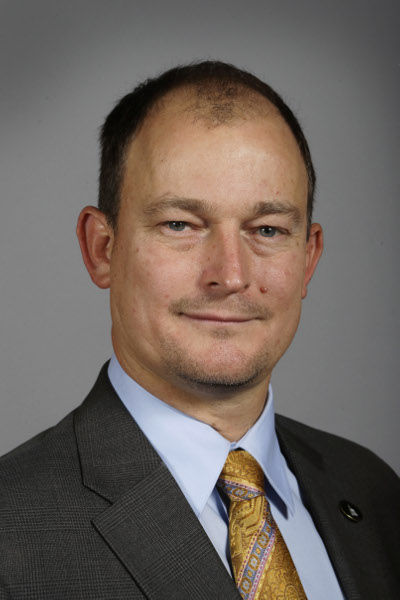Editorial: Partisan balance bill discriminates unreasonably

Shown in this Wednesday, Jan. 30, 2013, file photo is State Sen. Mark Chelgren, R-Ottumwa, at the Statehouse in Des Moines, Iowa.
February 27, 2017
A bill has been proposed in our Iowa Senate that would compulsorily create political diversity in our state university’s faculty population. The bill — Senate File 288 — proposed by Sen. Mark Chelgren, R-Ottumwa, would freeze the hiring of new teaching professionals until the registered number of Democrats and Republicans among them reached numbers within 10 percent of each other.
A similar bill, out of the state of North Carolina’s Legislature, called for the faculties of the University of North Carolina’s public universities to be equally balanced — to the degree that they be adjusted to reflect the state’s party-registered voting population. The bill was shelved this past Monday night.
But back to Iowa: As a means of accomplishing this balance, Chelgren’s proposed bill demands that “the state commissioner of elections shall cooperate with the board and furnish, free of charge, voter registration records” of each and every faculty member.
Short of this bill’s arguable constitutionality, short of its possibly affecting our state universities’ accreditation, short of its being such a heavy-handed government intervention in a sector generally reserved from at least as bold engineering as this, it is entirely, unforgivingly unethical.
It is our government-funded state universities’ duties to seek out the most intelligent, trained, qualified teaching professionals it can. To discriminate against these candidates based upon their personal political preferences is downright immoral and perfectly counterproductive. This is to say nothing of the undoubtedly bloody legal battles that legislation like this would entail.
As a qualifier, the bill allows that those who declare “a no party affiliation need not be considered in determining the political party composition of the faculty.”
Is this the direction that we’ll head? Will each and every hopeful young teaching professional, wishing to join the faculty at one of our state universities, be forced into either crossing his or her fingers and hoping their declared political affiliation land on the right side of the chopping block — or, conversely, being cowed into declaring no political affiliation at all?
There’s no place for this nonsense in our institutes of higher learning. It’s in their name; they serve a higher purpose. Their purpose is to educate our youth. And to so unreservedly, arbitrarily politicize the hiring of these educators is a violation of all they stand for. We could only imagine how other states — other developed countries, even — would balk if such legislation came to pass, and we could not be surprised by it.






